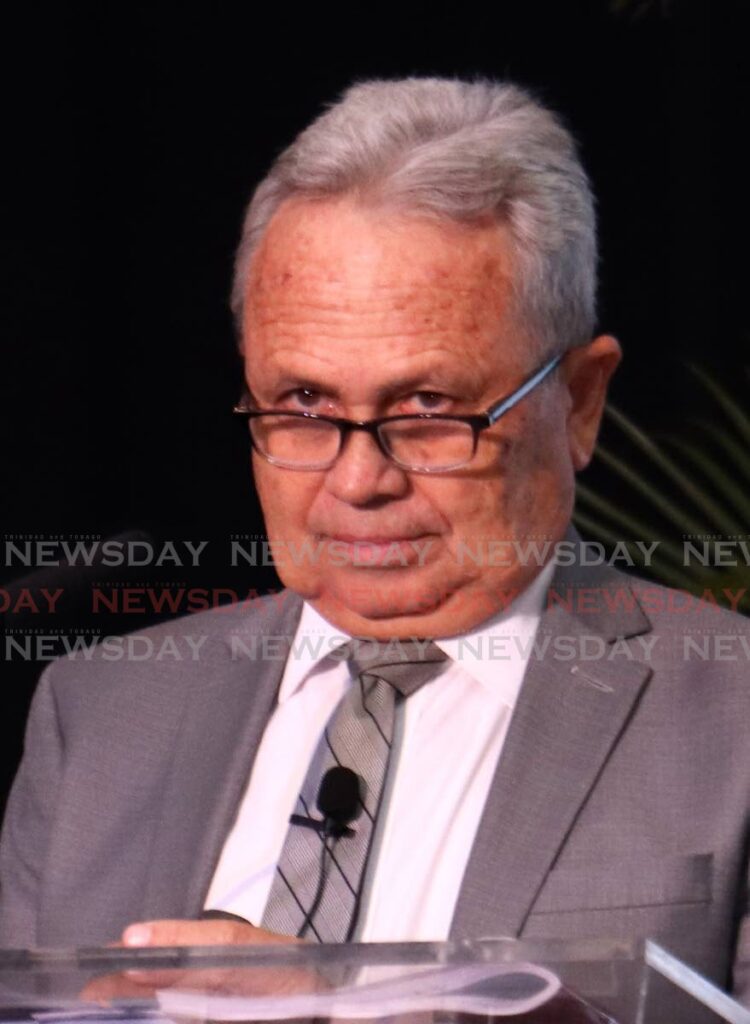Trinidad and Tobago economic struggles: A deeper reflection

KENNY PERSAD
TT, ONCE a shining beacon of economic promise in the Caribbean, now finds itself at a critical juncture. Beneath the surface of its energy-rich economy lies a precarious dependency on oil and gas, exacerbated by decades of missed opportunities for diversification and fiscal reform.
The persistent challenges faced by the nation, from dwindling foreign reserves to mounting debt, demand not just acknowledgement, but bold and transformative action.
At the forefront of this economic quandary are Prime Minister Rowley and Finance Minister Colm Imbert, figures whose leadership has been both criticised and scrutinised in equal measure. Dubbed by detractors as the "Diego Martin dinosaurs," their governance is often seen as emblematic of an era overly reliant on fossil fuels.
While TT has long enjoyed the benefits of its energy resources, this reliance has also left the nation exposed to the volatility of global oil and gas markets – a reality laid bare during the dramatic downturn in energy prices over the past decade.
A nation's currency is a reflection of its economic strength, and the TT dollar tells a troubling story.
Unlike neighbouring Barbados, which has managed to maintain currency stability despite limited natural resources, Trinidad's dollar has faced significant devaluation pressures.
The combination of declining energy revenues and insufficient diversification has led to a foreign exchange crisis that continues to cripple businesses and hinder growth.
Dr Rowley's recent attribution of the forex challenges to citizens' spending habits – such as increased credit card use and demand for imported goods – feels misplaced. Such statements risk oversimplifying a deeply systemic issue.
The fact remains: the failure to diversify the economy during periods of prosperity, such as when reserves peaked at US$10.5 billion in 2015, has left the nation ill-prepared for leaner times.
Instead of strategic investment in other sectors, TT doubled down on its energy dependency, a choice now yielding diminishing returns. The government's reliance on borrowing to sustain the country’s standard of living has added another layer of fragility to the economy.
While borrowing can serve as a short-term buffer during economic downturns, it is not a sustainable strategy. As national debt balloons and reserves dwindle, the risk of a full-blown fiscal crisis looms larger.
History offers countless examples of nations that have borrowed their way into deeper economic despair. Without a clear plan for growth and repayment, borrowing becomes a bandage on a wound that requires surgery.
Unfortunately, TT seems to be treading this perilous path, with little indication of a comprehensive long-term strategy to reverse course. The stagnation of the oil and gas sector, as highlighted by the Minister of Energy, underscores the urgent need for reform.
While the anticipated gas supply from Venezuela provides a glimmer of hope, it is far from a solution to Trinidad’s economic woes. Relying on external sources to revive the energy sector only perpetuates the cycle of dependency that has hamstrung the nation for decades.
The phrase "diversify or die" has become a stark reality for TT. Yet the opportunity to pivot toward new industries has been repeatedly squandered. Agriculture, tourism, technology – these are sectors with immense potential, yet they remain underdeveloped.
The government’s delay in addressing diversification until 2021, despite years of warnings, reflects a troubling lack of urgency and vision.
One of the most disheartening aspects of TT’s economic narrative is the tendency of its leaders to deflect blame. Whether pointing fingers at citizens’ spending habits or invoking shadowy "special interests," such rhetoric does little to inspire confidence.
The real issues lie not with the choices of ordinary citizens, but with the decisions – or indecisions – made by those in power.
The state of public institutions further illustrates the need for accountability. Agencies drowning in debt, such as the TT Electricity Commission (T&TEC), highlight the inefficiencies and mismanagement that plague the public sector.
Reforming these institutions is not just necessary – it is imperative for restoring faith in governance and laying the groundwork for economic recovery.
The economic struggles of TT are a sobering reminder of the dangers of complacency. Yet within this crisis lies an opportunity to reimagine the nation’s future.
Diversification must move from being a buzzword to a concrete policy priority. Strategic investments in agriculture, tourism, and digital innovation can chart a path toward resilience and prosperity.
Leadership is crucial in this endeavour. Rowley and Imbert must rise to the occasion, not with excuses or blame, but with bold and decisive action. The time has come to acknowledge past mistakes, embrace accountability, and commit to a future that prioritises sustainability over short-term gains.
TT possesses the resources, talent, and potential to overcome its current challenges. But realising this potential requires a collective effort – one that involves not just government leaders, but also businesses, civil society, and ordinary citizens. Together, the nation can build an economy that is not only stable, but also adaptable to the demands of a rapidly changing world.
The clock is ticking. For TT, the choice is clear: innovate, adapt, and thrive – or risk being left behind in the wake of progress. The time for action is now.

Comments
"Trinidad and Tobago economic struggles: A deeper reflection"